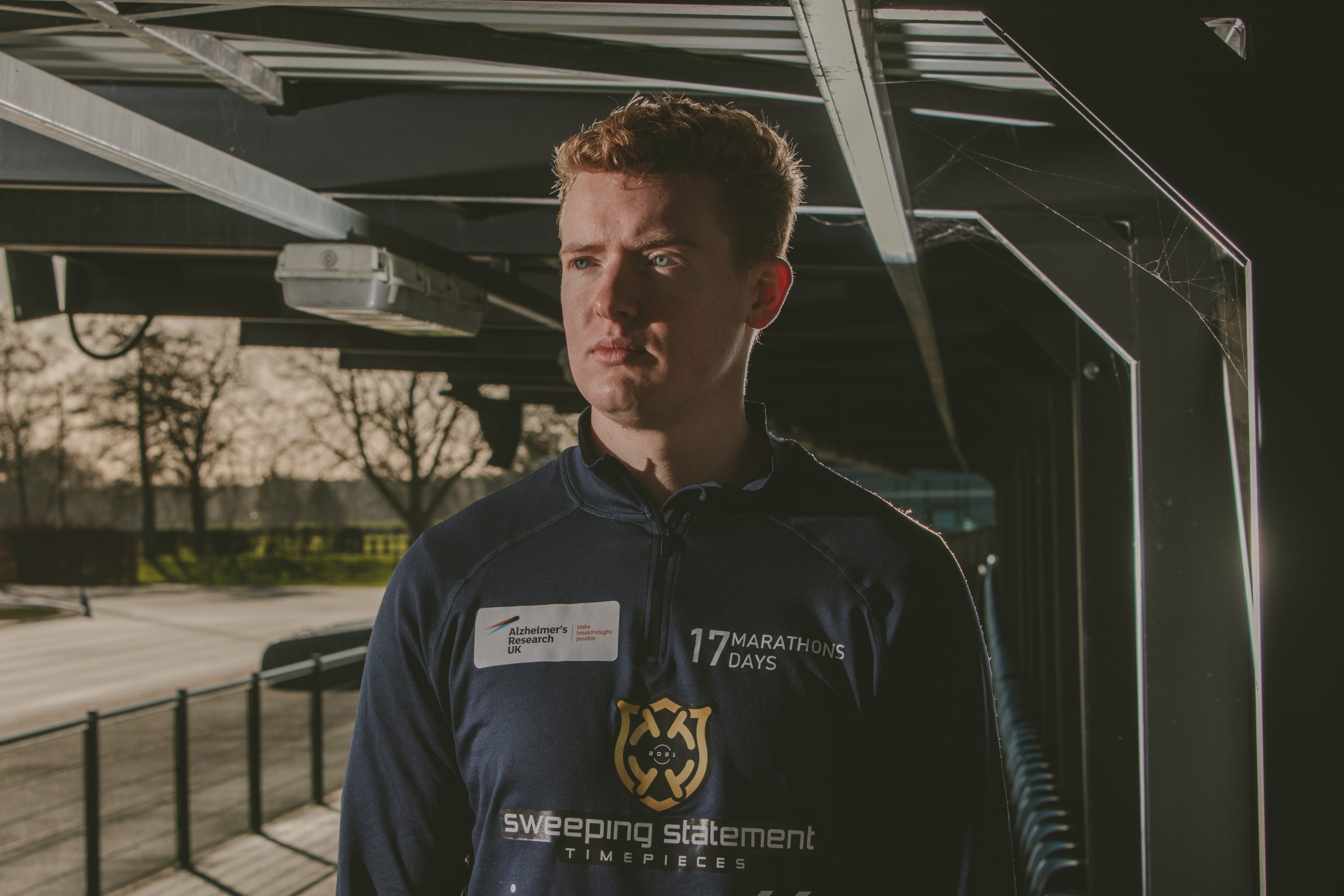
Meet Louis Alexander, the 22 year-old British adventurer and endurance athlete now working full-time to raise money for charity.
Last month, Louis Alexander completed 17 long marathons in 17 gruelling days. Battling heavy weather for the first ten days, and then a chest infection and shin splints for the second week, it was the hardest challenge he’s done yet.
Now, as a full time adventurer, Louis spends his time organising, training and completing challenges for charity. Working for causes close to his heart, including Alzheimer’s Research UK and Walking With the Wounded, he is keen to stress how his challenges pale in comparison to those he works to help.
We spoke to him upon completion of the 17 marathons, discussing both his prior challenges and some of his next ones. As he looks to commit his career fully to these charitable expeditions, Louis also opened about what’s motivated him.
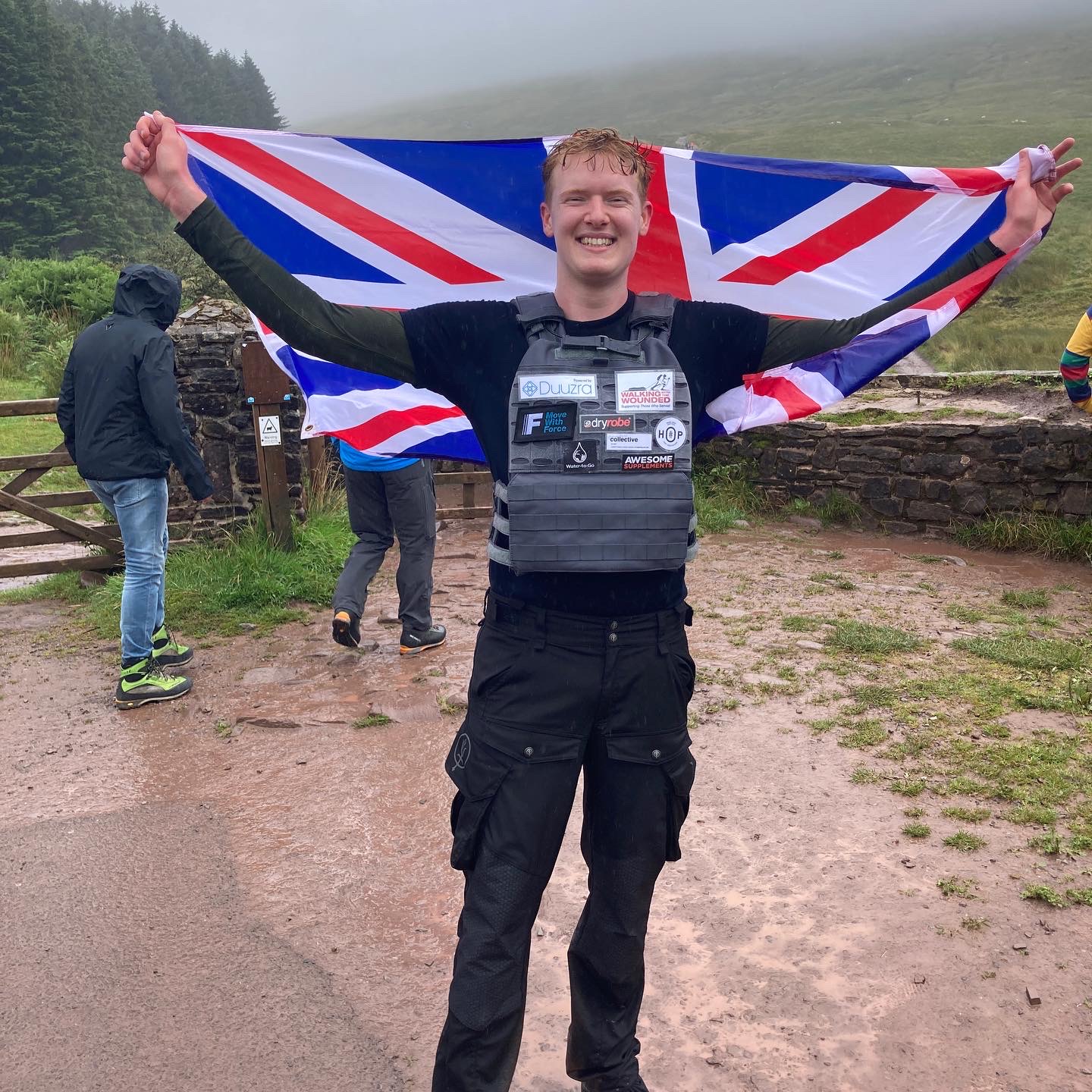
Tell me about the 17 marathons in 17 days…
It was definitely a big step up from what I’d done before. My background is three years now of this adventure and endurance sports, and the 17 marathons were basically just a culmination of all that training and all the challenges. So it was a huge step up, and also my first project as a full time adventurer.
But it went well. From marathon ten onwards we had some trouble with shin splints, a chest infection and a fever and things, but the first nine were actually surprisingly easy. The main trouble we had was from the storms, but it made the running interesting. I’m just glad it’s done now!
What kind of help did you have?
I had family and friends acting as a support crew. I didn’t have anyone running the whole 17 days with me, but most days people would join. They’d do a 10k or a half marathon, and I just had people dropping in and out. I had family who were there throughout the whole time, helping with nutrition with driving from location, because we did seven or eight different cities. I would run, you know, four, five, six hours, and then we’d be in a car on the way to the next day. But when you have people join as you run, it’s just an amazing feeling. It makes it go a lot quicker. Much nicer than running by myself.
Other than by doing these remarkable challenges, how do you find sponsors?
It’s definitely tough. It’s basically just about being authentic. With the challenges, there’s no real blueprint. It’s a learning process. I was really lucky during the 17 marathons to have quite a few sponsors, which was just amazing. But I think being authentic is the best thing.
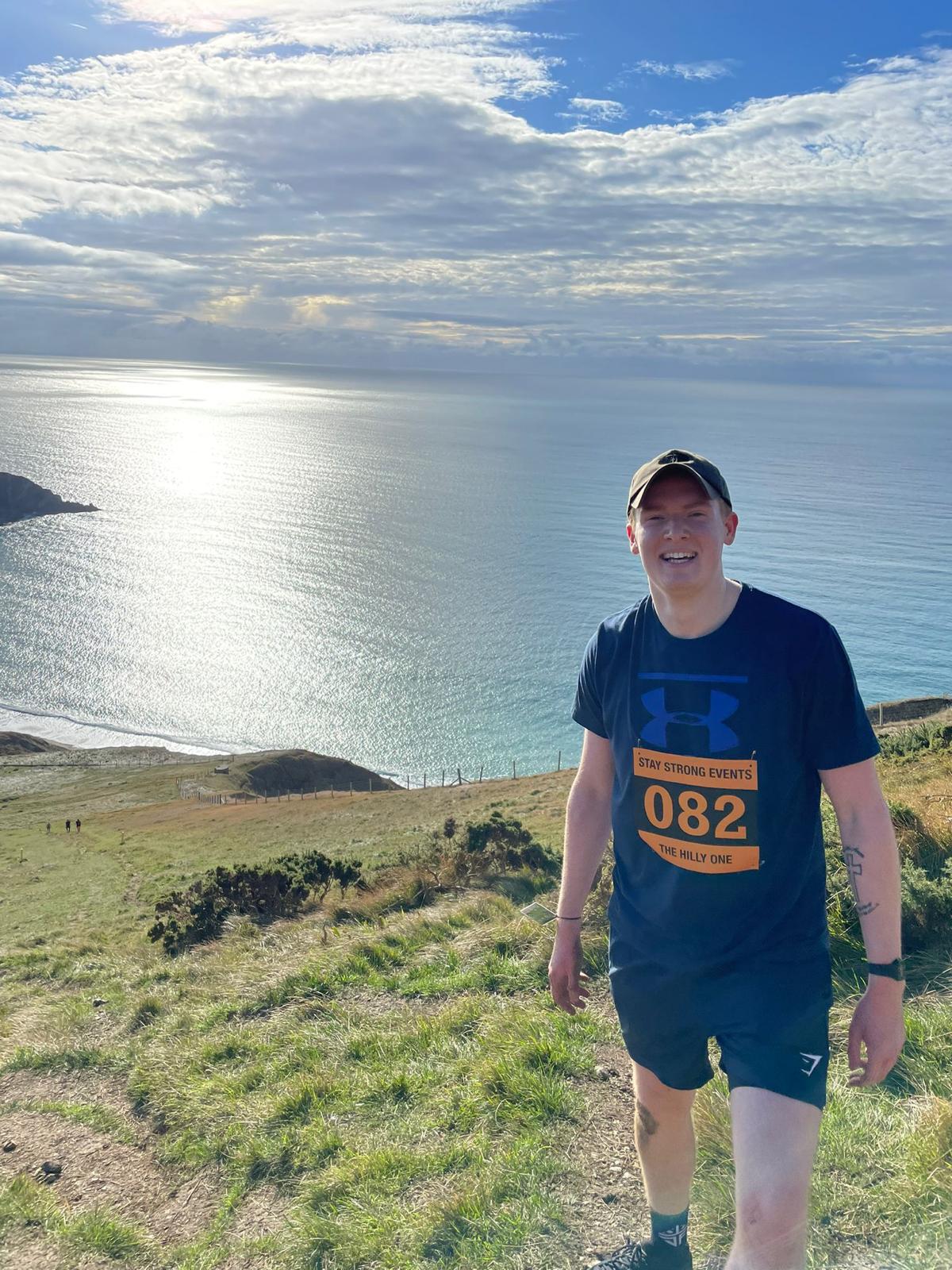
Have you been able to see first-hand the benefits of the money you’ve raised?
Yes, 100 per cent. Even during the 17 marathons, there were quite a few researchers from different universities who popped along. The reason I did the different places was to target cities home to the research labs. There was this Alzheimer’s researcher who was directly funded by the charity, he came down just to watch and support for an hour.
For me, to hear from him that the money that I’m raising is going directly to actual research… it’s amazing. These researchers are getting grants from the charity so it’s a great feeling to know the money is actually going to find the cure for this awful disease, where research is the future.
With previous challenges, I’ve been able to actually visit the labs afterwards. This was all pre-Covid, in person. I know it’s much harder to do the actual research than anything I do trying to raise the money. These marathons are tiny in comparison to the job they’ve got on their hands.
You alluded to COVID there, and I was reading about your 20 in 2020, but what kind of difficulties has the pandemic posed for you specifically?
Things are definitely opening up now, but the main challenge was international travel. We had to put a lot of things on hold. The original list for the 20 challenges in 2020 looked completely different. We had to adapt to the lockdown at home, and find UK based challenges. Things like the three peaks or like a duathlon. It was a lot more running than I had originally planned because I couldn’t get up to the mountains as much, but things are definitely opening up this year. I’ve got quite a few international expeditions and things which I’m really excited for.
View this post on Instagram
What are some of those international plans?
I’m going to do Mont Blanc, which is in June, and then a few more. I’m heading out to Africa as well for an expedition, which was where it started for me. I went to Mount Kilimanjaro when I was 19 years old and I had a bit of a sporty background, but it was never adventure focus. I returned home from there, the summit of Africa, with this brand new passion and love for endurance sports.
It built into a hobby for three years or so. And then last November I was in the position to look at what I wanted to do in my life and looked at what I really loved which are these adventure, endurance sports. I looked at it full time and this was the opportunity to go for it. That’s sort of what I’m doing really now. So I’ve got six challenges this year, including 17 marathons to start.
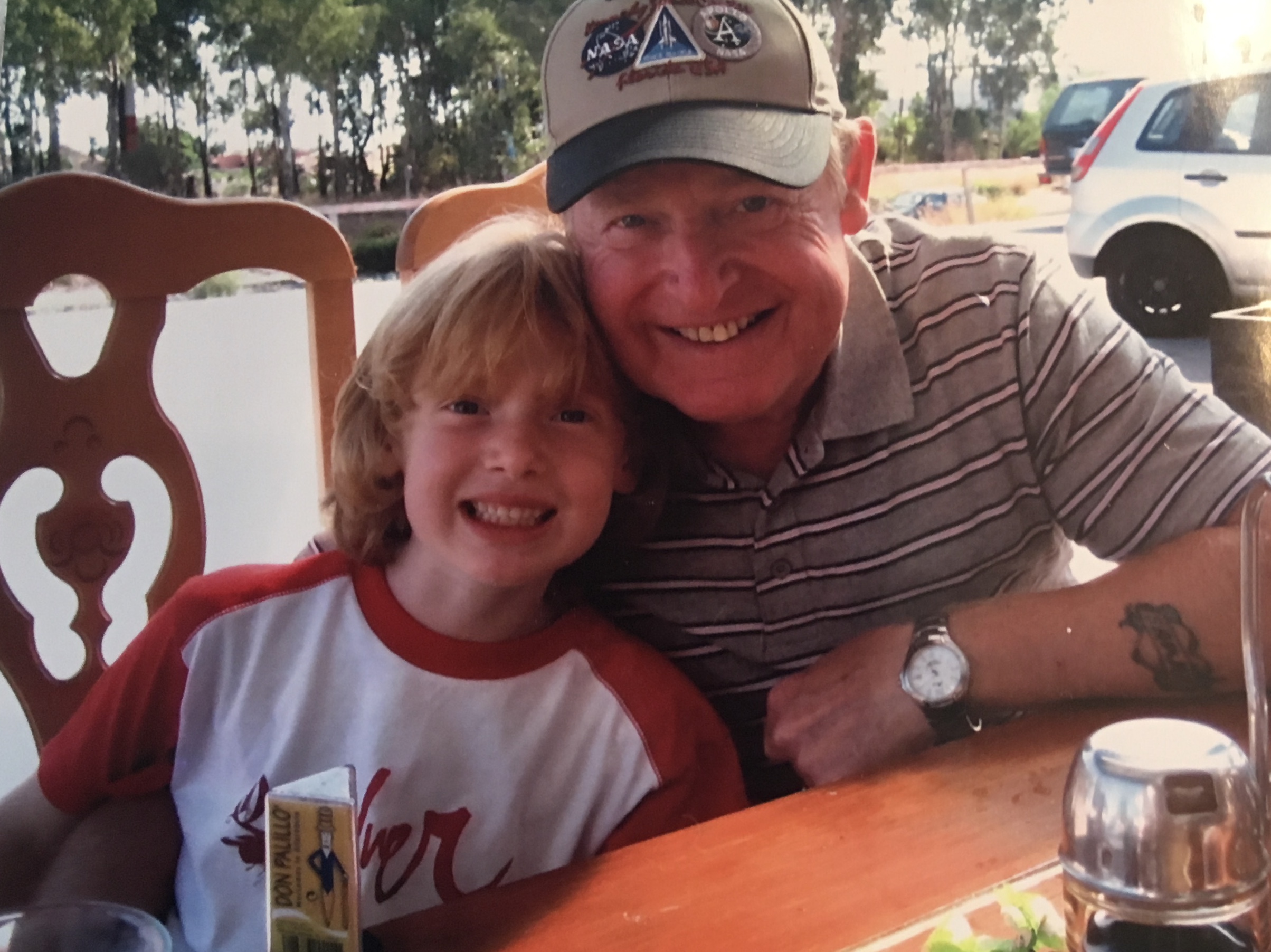
Louis and his grandfather, Captain Rick Taylor
There is one key inspiration for Louis. At 58 years old, his grandfather, Captain Rick Taylor, was diagnosed with dementia. An explorer and adventurer himself, he served all around the world during 38 years in the British Army. In 2019, after 17 years of suffering, Rick Taylor sadly passed away.
I made a promise at his funeral to support Alzheimer’s research every year until we find a cure. I have that commitment, something I’ll never break, and that’s why every year I do a minimum of one challenge for Alzheimer’s Research UK. It gets bigger and bigger every year, trying to raise more money. And you know, you do need to become more exciting and more interesting each year because otherwise people aren’t going to donate.
I’m also very proud to be an ambassador for Walking With the Wounded. There are other charities as well, of course I’m completely open to supporting all the amazing causes, but Alzheimer’s Research UK is just closest to my family’s heart.
Were the 17 marathons for the 17 years?
Yep, that was a long term battle for him. He was diagnosed at 58 years old. And although I didn’t really know him when I was growing up, I grew up on all these stories, even when he was alive. These stories from my Nana and my mum, about him and his adventures. He’s done his time in the army, all these great expeditions. Yeah. In many ways, I guess I’m very similar to him, which people told me a lot during the marathons.
I did two of them in Sheffield, so I stayed with my Nan during those ones. And she showed me this photo of my grandfather abseiling off this building, wearing a chef’s outfit, all as this fundraiser for charity. So he, too, was supporting these causes through his adventures.
He was still young when he was diagnosed with dementia, you know? It can affect people in their forties, even thirties, with early onset Alzheimer’s. It’s an incredibly scary illness.
What does the term ‘adventurer’ mean to you?
I call myself a multi-discipline adventurer, in the sense that all the disciplines are different sports. Whether it’s endurance swimming, ultra running, mountaineering – the one thing which transcends all of it is they’re challenges of the mind.
This was a running challenge I just completed. The next is going to be rowing. The one after that is mountaineering. It’s all in the mind, and that’s ultimately what being an adventurer is. To me, it’s a test. And it’s different to a traditional athlete who trains in the best conditions and then performs in the best conditions.
Adventurers can train in the worst conditions and then perform in the worst conditions, but still perform their best, if that makes sense? When there’s awful weather, things have gone wrong, whatever it is, they’ll still perform and give their best even in that situation.
So the best thing is just experience. I need the challenges to build up, because in those dark times – and there’s always dark times during 17 marathons – you lean on your experiences from previous challenges. You lean on that experience, you remind yourself what you’ve done, what you’ve gone through, and that’s how you get through. I think each challenge is progressively building and benefiting your mind. I do other techniques, things such as visualisation and manifestation, and they also help.
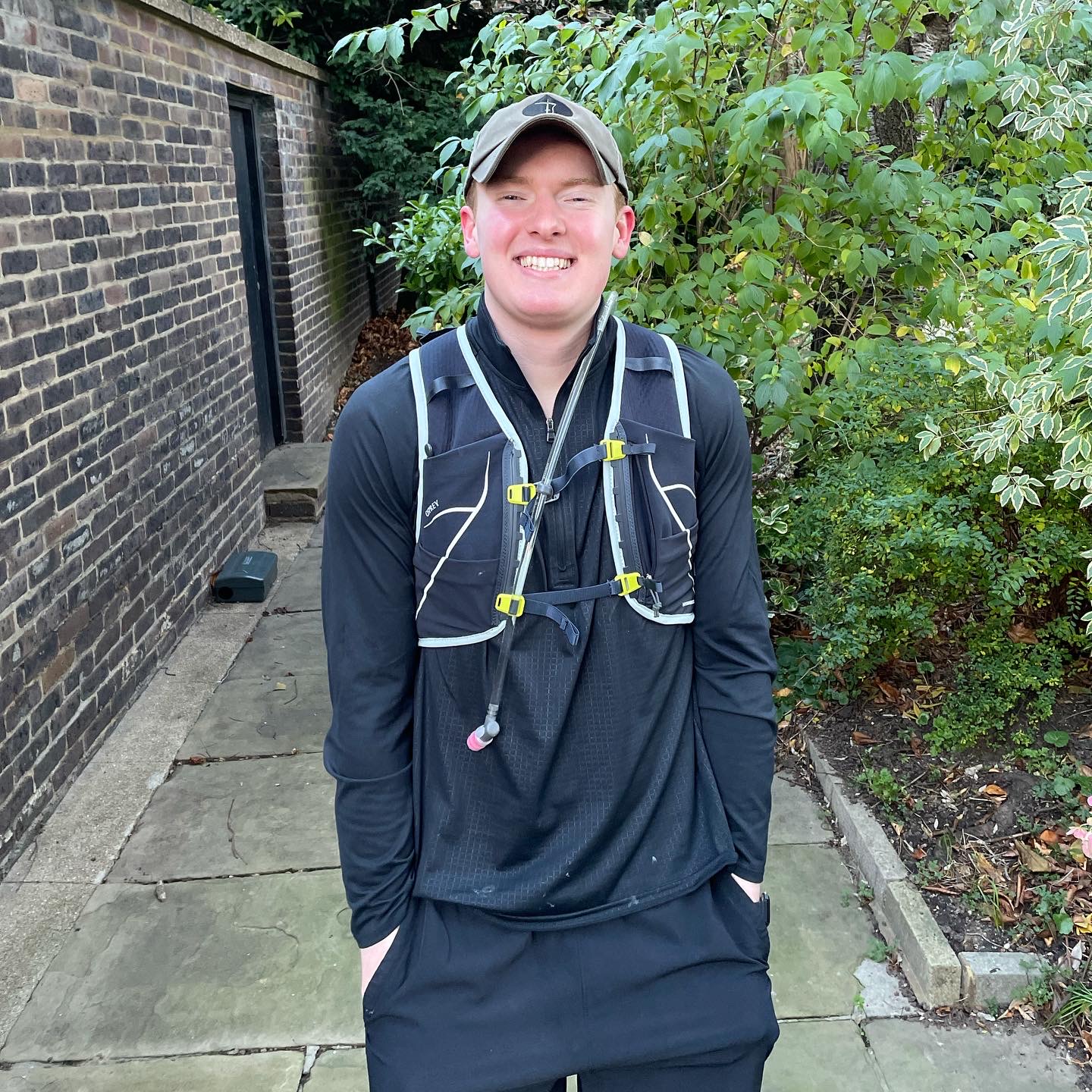
Is there any one dream challenge? One that you think you’ll get towards one day and that would be the pinnacle?
There’s no one huge plan. I have huge ambitions for the adventure world, such as the Marathon des Sables and climbing Everest in my 20s. But I’m still not sure what that life-defining adventure will be for me. I’m only 22, so I’m only just getting started. I’m in a unique position where I have found my passion at such a young age, and I will not take that for granted. So I have a lot to prove, and my experience needs to grow as well as my actual physical ability and my mental endurance.




